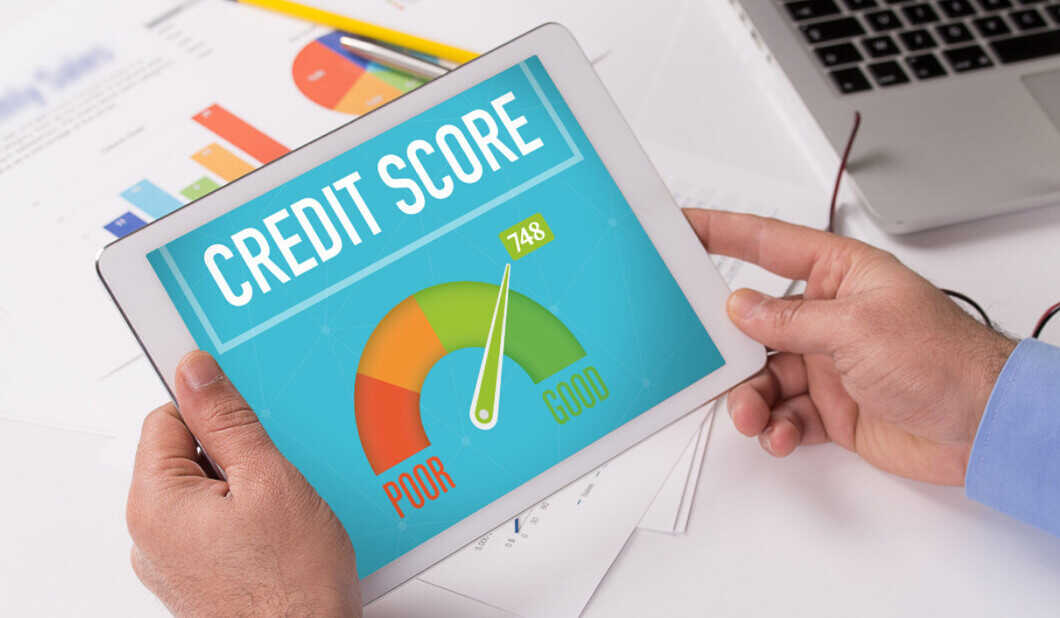If you want to rule the personal finance game, you need to get a grip on the rules – especially when it comes to credit scores. Your score is basically the ruler that measures your eligibility for loans, credit cards, and other financial opportunities. So, hang tight because we’re taking a deep dive into the nitty-gritty of credit scores. We’ll chat about their importance, what factors affect them, and tips to improve your score. Click here to level up your personal finance game!
Table of Contents
What is a Credit Score?
A credit score is a numerical representation of an individual’s creditworthiness. It’s basically a three-digit number that represents your creditworthiness. Essentially, lenders and financial institutions use this number to evaluate the risk of lending you money. By checking your credit history and financial habits, they can determine whether you’re a reliable borrower or a riskier investment. So, your credit score gives them a quick snapshot of your financial standing, which helps them decide whether to approve your loan and what kind of interest rate to offer you. Pretty important stuff, right?
Importance of Credit Scores
Your credit score is a big deal in your financial world. It can affect your ability to get loans, credit cards, good interest rates, and could even impact job opportunities. A great credit score shows you’re responsible with your finances, and ups your chances of getting credit on great terms. It’s important to keep it in good shape!
Factors Affecting Credit Scores
Several factors contribute to the calculation of your credit score. Understanding these factors can help you make informed decisions to maintain or improve your score.
Payment History
Your payment history is the most crucial factor influencing your credit score. Lenders want to see a consistent record of on-time payments. Late payments, defaults, or bankruptcies can significantly lower your credit score.
Credit Utilization Ratio
The credit utilization ratio measures the amount of credit you use compared to your total available credit. Keeping this ratio low, ideally below 30%, demonstrates responsible credit management.
Length of Credit History
The length of your credit history shows how long you have been using credit. A longer credit history provides a more robust basis for lenders to evaluate your creditworthiness.
Types of Credit
Having a diverse mix of credit types, such as credit cards, loans, and mortgages, indicates your ability to manage different financial obligations responsibly.
New Credit Applications
Frequent applications for new credit can raise red flags for lenders, suggesting financial instability. Each credit application creates a hard inquiry on your credit report, which can temporarily lower your score.
Credit Score Ranges and Interpretation
Credit scores typically range from 300 to 850. Higher scores indicate lower credit risk, while lower scores suggest higher risk. Here is a general interpretation of credit score ranges:
- Excellent (800-850): Indicates excellent creditworthiness and high likelihood of credit approval.
- Very Good (740-799): Demonstrates responsible financial behavior and qualifies for favorable interest rates.
- Good (670-739): Considered a satisfactory score, but may not secure the best interest rates.
- Fair (580-669): Indicates higher credit risk and may result in limited credit options.
- Poor (300-579): Signifies significant credit challenges and limited access to credit.
How Credit Scores are Calculated
Credit scores are calculated using complex algorithms developed by credit scoring models like FICO and VantageScore. These models take into account various aspects like your payment history, how much credit you’re using, and how long you’ve had credit. Although the precise calculations are secret, to focus on maintaining good financial habits to ensure a positive credit score. So, keep on the right track to secure your financial future!
Monitoring Your Credit Score
Keeping an eye on your credit score is super important if you want to keep your credit in top shape. Luckily, you can snag a copy of your credit report totally for free from the big three credit bureaus: Equifax, Experian, and TransUnion. And if you’re looking for even more help, loads of sites and services offer credit monitoring with valuable alerts to any changes or snafus. Don’t let your credit score sneak up on you – stay on top of it like a pro!
Tips to Improve Your Credit Score
Improving your credit score is possible with the right strategies and consistent financial discipline. Consider the following tips to enhance your creditworthiness:
Pay Bills on Time
Ensure that you make all your payments on time, as payment history significantly influences your credit score.
Reduce Credit Card Balances
Paying down your credit card balances can improve your credit utilization ratio and positively impact your credit score.
Maintain a Diverse Credit Mix
Having a mix of credit types, such as credit cards, mortgages, and personal loans, demonstrates your ability to manage various financial obligations.
Avoid Frequent Credit Applications
Avoid applying for credit too frequently, as multiple inquiries within a short period can negatively affect your credit score.
Seek Credit Repair Services
If you’re looking to improve your credit score, seek credit counseling from Credit Max Solutions! Their experts can reduce your credit utilization ratio by lowering your balances and increasing your credit limits. Say goodbye to the stress of bad credit and take control of your finances with Credit Max Solutions.
Common Misconceptions about Credit Scores
Several misconceptions surround credit scores. It’s crucial to debunk these myths to have a clearer understanding of how credit scores work. Some common misconceptions include:
- Closing a credit card will immediately improve your credit score.
- Checking your own credit score negatively impacts it.
- Your income directly influences your credit score.
- Only late payments affect your credit score.
The Impact of Credit Scores on Financial Opportunities
Your credit score determines your financial future! A great credit score can unlock opportunities like better loan terms, lower interest rates, and higher credit limits. Plus, it can affect your ability to rent an apartment, get insurance, and even impact job opportunities. Don’t underestimate the power of your credit score – it can make a huge difference in your life!
How to Rebuild a Poor Credit Score
If you have a poor credit score, don’t lose hope. Rebuilding your credit is possible with patience and the right strategies. Some steps to rebuild a poor credit score include:
- Paying bills on time consistently
- Reducing credit card balances
- Seeking credit counseling if needed
- Avoiding new credit applications
- Reviewing your credit report for errors
How Long Does It Take to Improve a Credit Score?
The time required to improve a credit score depends on several factors, including the severity of past credit issues and the steps taken to improve credit habits. Generally, it takes time and consistent positive financial behavior to rebuild a credit score. Small improvements can be seen within a few months, while significant improvements may take years.
The Bottom Line
Knowing how credit scores work is a must-have skill in today’s world of personal finance. Having a great credit score means more financial doors open up for you, while a poor score can hold you back. Start taking control of your credit by keeping an eye on it frequently, acting responsibly with your credit, and using effective techniques to boost your creditworthiness. With these moves, you’ll elevate your credit score and enjoy all the advantages that come with it.





